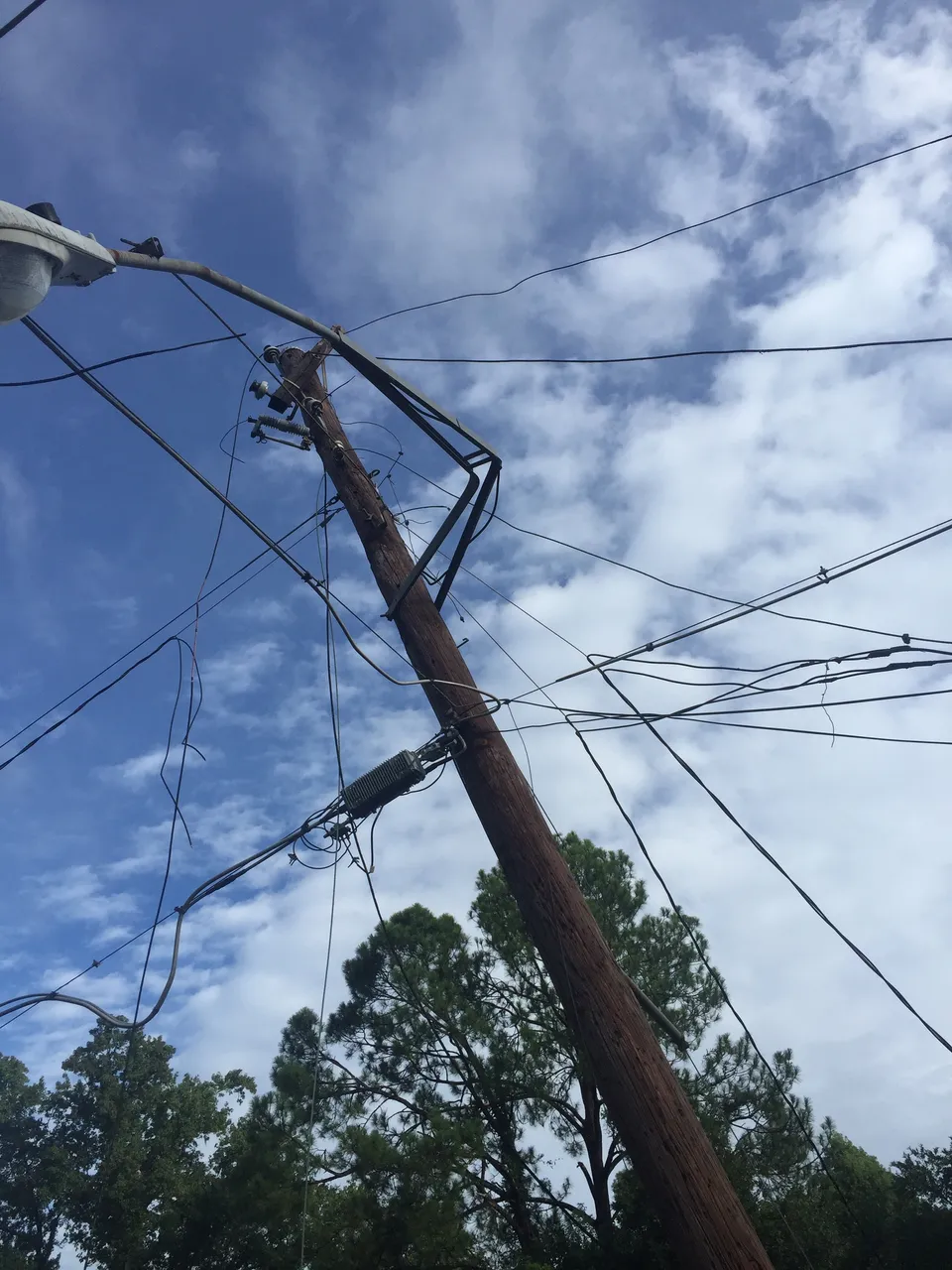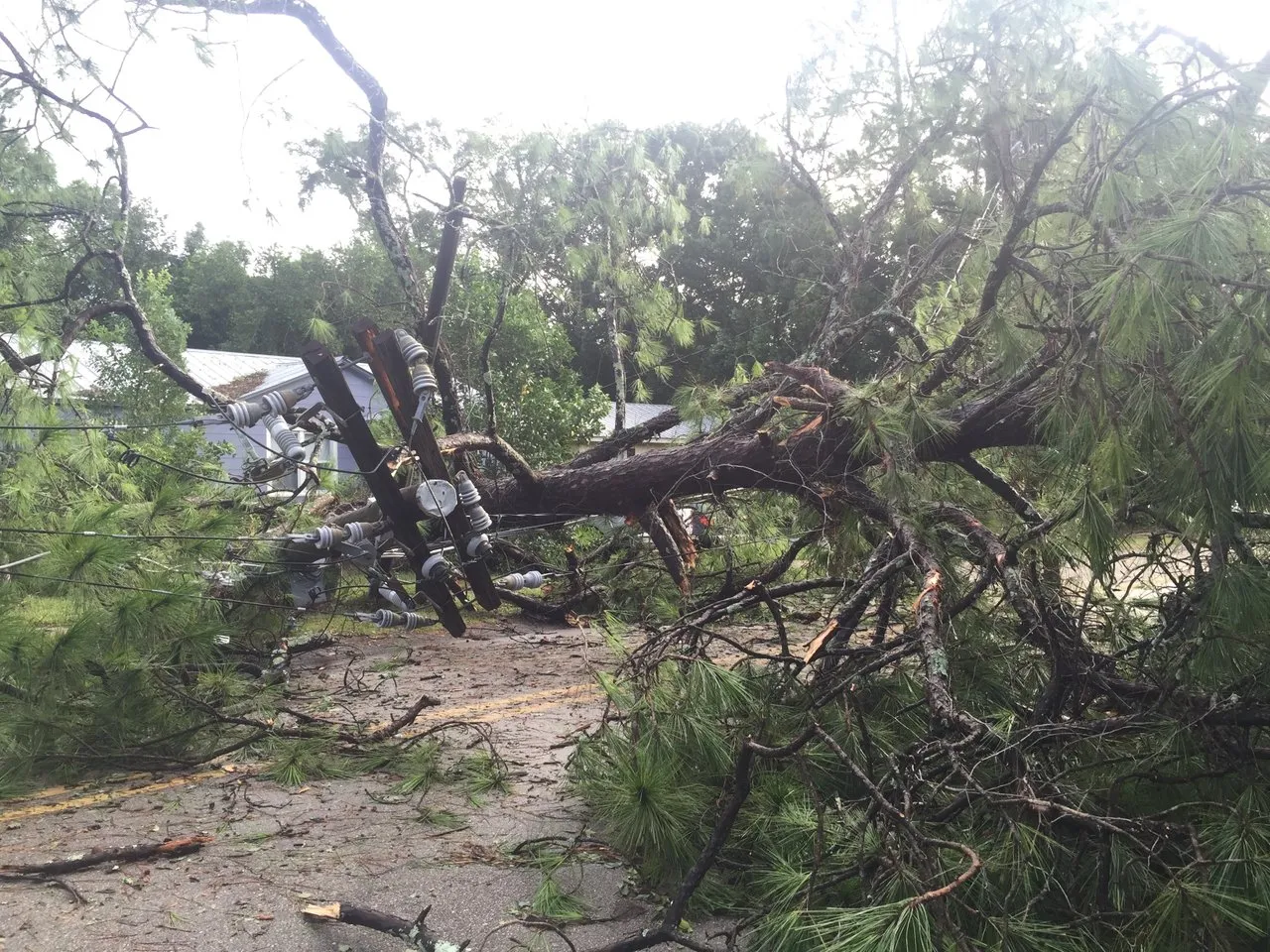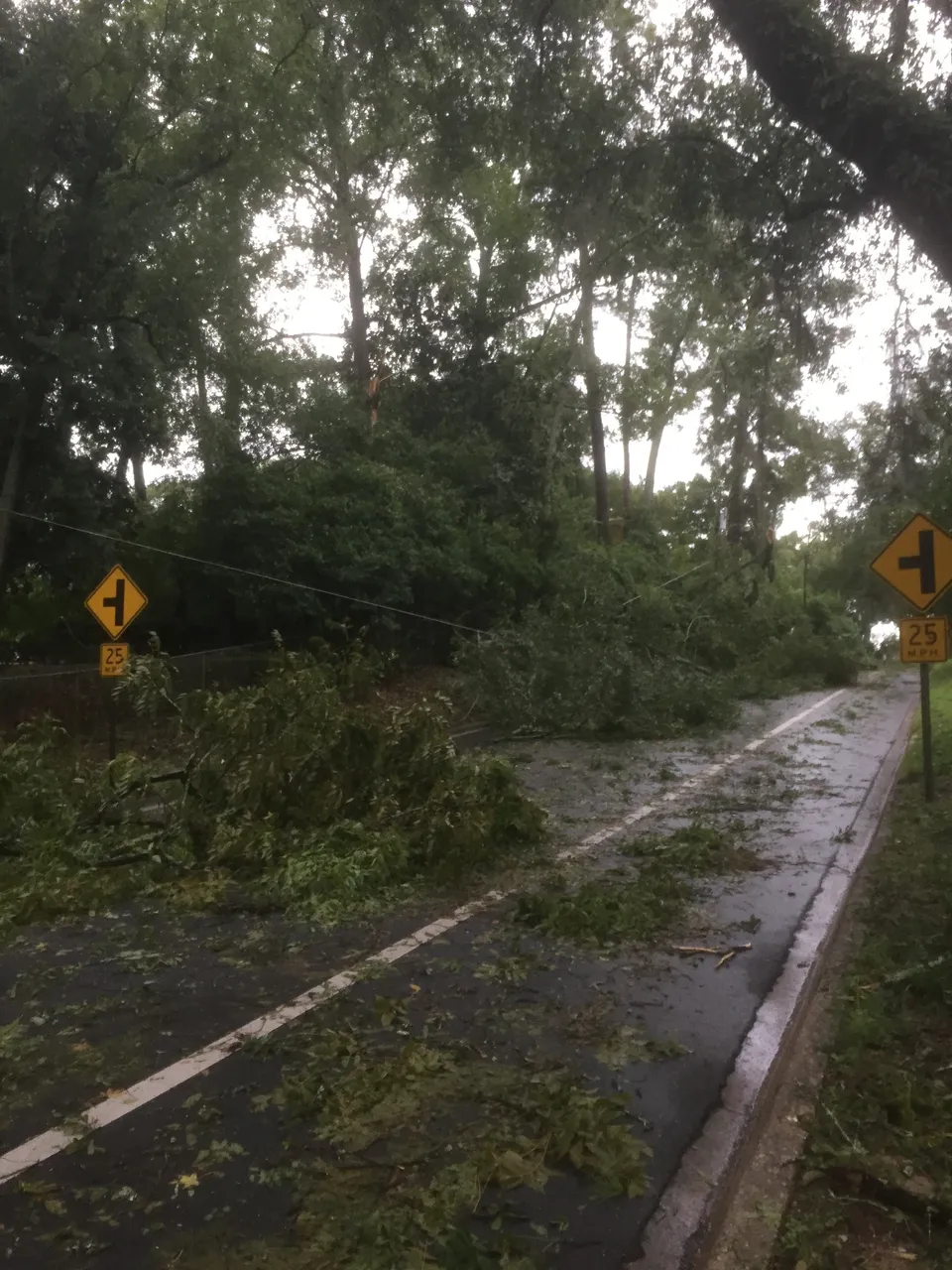For the first time in thirty-one years, on Thursday, September 1st, Tallahassee, Florida took a direct hit from a hurricane. Hurricane Hermine ripped through Florida's Capital City with gusts of 64 MPH, knocking down trees that have stood for decades, snapping power poles like twigs and causing 250,000 people in North Florida to lose power. Many of us were without power for almost a week.

Let me preface this by saying that most of us still had running water, and gas appliances were still able to function. We were not as bad off as we could have been and this made the week without power a bit more tolerable. That being said, for most people in the States, a week without power is a long time and it was interesting to observe and learn from the situation.
Here are some of my most interesting observations.

Preparation
When and if the grid truly goes down, it may come without warning. In this case, a hurricane moves slowly and we had ample time to prepare. Unfortunately, many people have no clue how to prepare themselves for a disaster. The day before the storm hit I went to the grocery store down the street to grab a few last minute items. While I was there, I was astounded by the number of people with carts full of perishable items. Raw meat, dairy products, frozen meals. In the face of disaster, these people were buying items that would not last more than a few hours without refrigeration! The most crucial needs in a survival situation are: Shelter, Water, Fire and Food. All of these items need to be sustainable. It's not enough to have food in your refrigerator or pantry, eventually it will go bad. It's not enough to have gallons of water, eventually it will run out. It's not enough to have a box of matches, they will run out or get wet.
During the Disaster
When the storm of the century is upon you, or the bombs are dropping from the sky, your actions and decisions will make a difference in whether you even have to worry about your food perishing. Luckily, there was only one known fatality from Hermine. This death was a homeless man that had a tree fall on his tent. Rescue operations were launched for individuals in coastal areas that chose not to evacuate despite repeated warnings. All of the canned food in the world won't save you if your house blows over. Have a backup plan, and don't be afraid to use it.

Post-Disaster Survival
Following a natural or manmade disaster, there will be a period of time when the government and infrastructure will not be in a position to help you. In this case, the only way for leaders to make decisions is by the numbers. The goal will be to make decisions that improve the situation for the maximum number of people at a time. Your individual crisis only matters in its impact or connection to other crises. If you run out of baby diapers, if your roof develops a leak, if your medication is ruined, you will likely be completely on your own in remedying the situation. I was surprised at how many people did not plan for these situations and then blamed their problem on the local governement. Handicaps, minority status, special needs that may have given you preference pre-disaster will become impedements that you will have to deal with on your own.
Post-Disaster Rebuilding
I've also been amazed at how eager people are to forget the hard lessons learned during a crisis. Life goes back to normal very quickly and no adjustments are made. I personally plan to look into solar power for my property and will be converting a diesel generator to operate on vegetable oil, just to mention a few things. As you rebuild, put things in place so that preventable problems during a crisis don't happen again.

Conclusion
Redundancy, Sustainability and Knowledge are the keys to surviving a crisis situation. If your gas stove doesn't work, have a camp stove; if that doesn't work, have a sterno, firepit, charcoal, flint and tinder. It's not enough to have water stored. You need a way (multiple ways) to disinfect and filter water to create a renewable source of clean drinking water. Have a cheap tent on hand in case your house is damaged. These solutions need to be as sustainable as possible for the long-term and your resources need to be used wisely. Knowledge is another important piece. Do you know how to perform CPR, to grow or forage your own food source?
If you like my work, don't forget to follow me: @jaredcwillis!